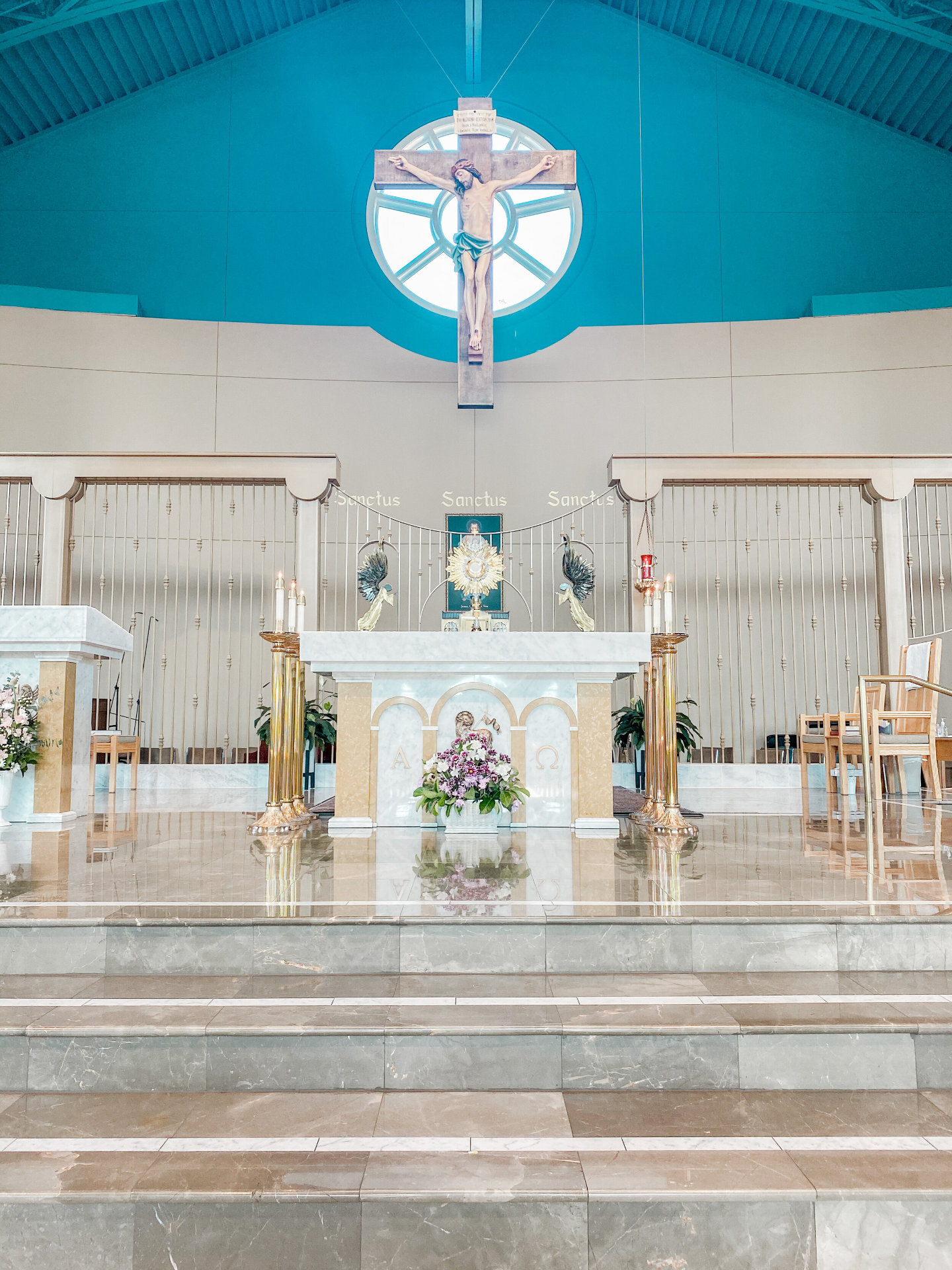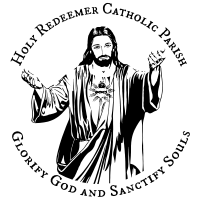
Pastor’s Columns
The Eucharist, Part 4
Regardless of how the charge of cannibalism arose, it was as false then as it is now. That’s because consuming the body and blood of Christ under the form of bread and wine does not fall under the definition of cannibalism. Merriam-Webster defines cannibalism as “the usually ritualistic eating of human flesh by a human being,” but there are several important differences that prove Catholics are not cannibals.
The Eucharist, Part 3
In order to understand why Catholics believe the Eucharist becomes the actual body and blood of Christ after it is consecrated at Mass, we must understand two philosophical ideas; substance and accident. A substance is what something is: an accident is what a substance possesses. So, for example, an apple (a substance) has many accidents. It has a skin of a particular color, a certain weight, shape, taste, and so on. These accidents are what we perceive with our senses, but an apple is more than just a bundle of accidents. These accidents could change, and the apple would remain an apple (that is, the apple could come in a different color or size). These ever-changing accidents are united within one unchanging substance that ceases to exist only when the apple ceases to exist (such as when it is eaten and digested).
The 15 Prayers of St. Bridget
Catholic devotions are particular customs, rituals, and practices of worship of God or honor of the saints which are in addition to the liturgy of the Catholic Church. The United States Conference of Catholic Bishops describes devotions as ‘expressions of love and fidelity that arise from the intersection of one's own faith, culture and the Gospel of Jesus Christ.’ Catholic devotions have various forms, ranging from formalized, multi-day prayers such as novenas, to activities which do not involve any prayers, such as Eucharistic adoration outside Mass, the wearing of scapulars, the veneration of the saints, the Canonical coronations of sacred Marian or Christological images, and even horticultural practices such as maintaining a Mary garden.
Called to Serve as Christ Campaign
Last weekend we kicked off an Archdiocesan-wide capital campaign known as Called to Serve as Christ or CTSAC. This will be a three-year-long effort to raise a sustaining endowment which will fund the retirement and health care of priests and nuns. This is an extraordinary opportunity for all to play a role in strengthening the Catholic Church in Western Washington. Our parish goal is $1.328 million. As we collect money up to our assessed goal, 85% of each dollar will go to the Archdiocese, while 15% will be returned to us to help pay for the Church Completion Project. Monies received from the CTSAC rebate will be used to either reduce how much we borrow for the Church Completion Project, or to pay down the loan for it. Please consider how your giving over the next three years might best be shaped to benefit both Holy Redeemer and the Archdiocese.
An Update on Me & The Coming Election
I’m interrupting our series on the Eucharist this week to talk about a couple of other things that are important to me this week: an update on my leg and the election.
It has been over six weeks since my surgery and almost seven weeks since I broke my leg. I saw my doctor this past week for another x-ray and counsel. While things are looking good for something like a full recovery, I still have to wait another 3½ weeks before I can begin to walk again. This was a blow for me, I will have waited more than 10 weeks from my break before I can take my first step, and that assumes that things progress as the doctor hopes.
The Eucharist, Part 2
Nearly all Christians celebrate some form of the Eucharist by consuming bread and wine in memory of Christ’s death and Resurrection. Protestants [non-Catholic & non-Orthodox Christians] usually refer to the Eucharist as the Lord’s Supper and do not believe that Christ is physically present in the bread and wine at their services or at the Catholic Mass.
Rejection of the sacrament: Some denominations do not celebrate the Eucharist. For example, the Salvation Army is usually known for its charity work, but it is actually a self-proclaimed Christian denomination. According to an article in the Los Angeles Times, “Catherine Booth, the influential wife of the founder [of the Salvation Army], admired the piety and practices of Quakers, who did not perform baptisms or Communion rites.
The Eucharist, Part 1
A couple of months ago Archbishop Etienne wrote a pastoral letter on the Eucharist; Eucharist is a Greek word meaning “thanksgiving”, as in thanksgiving for what Jesus Christ has done to redeem us. The Archbishop’s pastoral letter was in the Northwest Catholic, the Archdiocesan magazine sent to all registered Catholics in Western Washington. Here is a link to it in case you missed it.
In it, the Archbishop asks us to have a year of the Eucharist, a year in which we re-educate ourselves on the Eucharist and re-devote ourselves to Jesus Christ in it. So, I thought I would run a series of pastor columns on the Eucharist using a little book by Trent Horn at Catholic Answers. In it he answers 20 questions or accusations that people have about the Eucharist.
Pastor Column Archives







